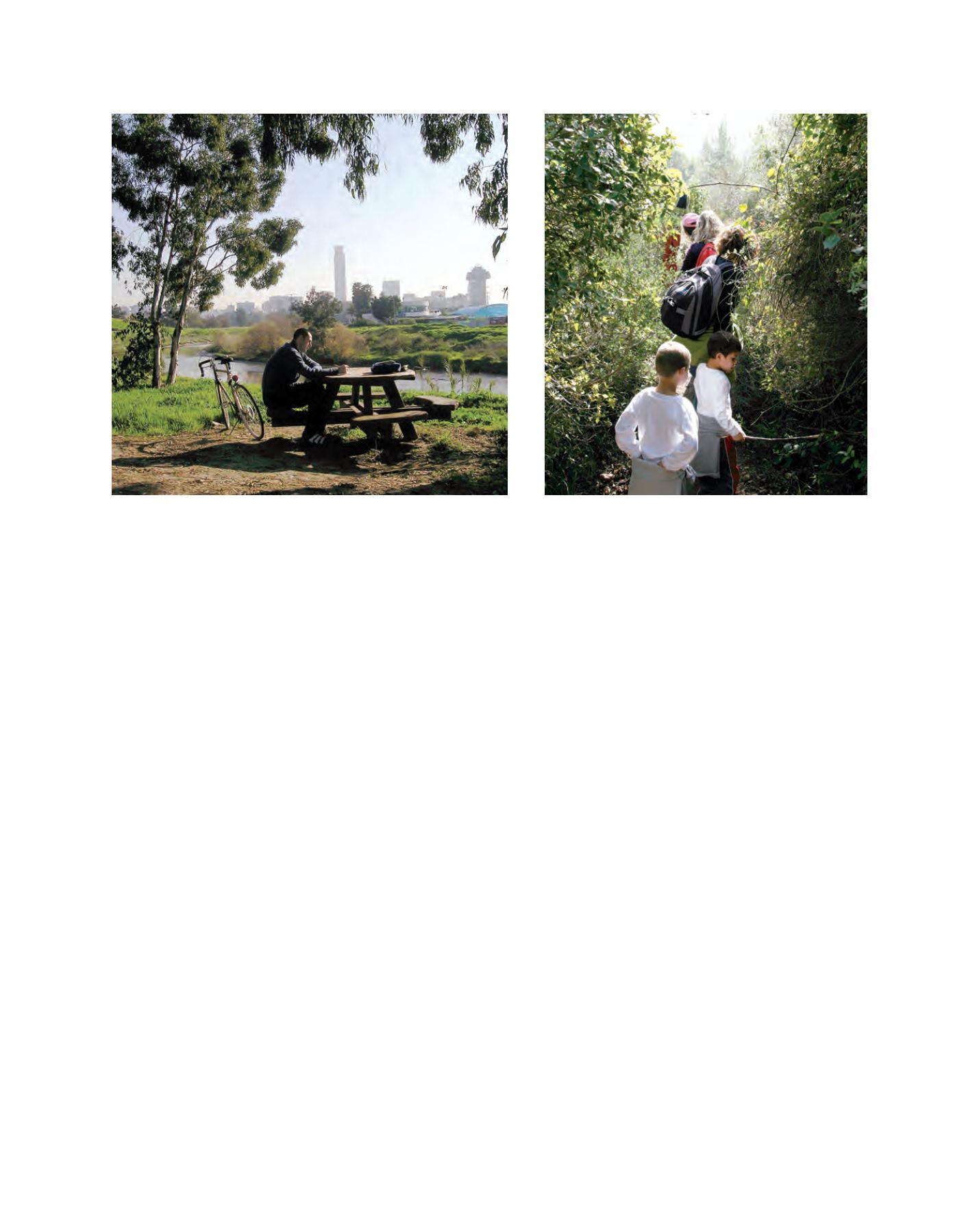

[
] 276
Community forests
There is a growing need for urban forests and woodland around built-
up areas in Israel. More than 91 per cent of the population in Israel
resides in urban areas. Immigration to Israel, especially in the 1990s,
has contributed significantly to the already high population growth
rate and has created tremendous pressure on green open spaces,
particularly on forests near urban areas.
The urban forests help to improve air quality, reduce city heat
and radiation, maintain biodiversity, and create pleasant residen-
tial environments. In 2002 KKL assumed the strategic mission of
improving the development and management of community forests
in and near urban areas. The work is guided by the principle of
partnership between residents and local authorities, increasing the
likelihood that communities will maintain the forest for themselves
and future generations.
Every community has its own forest team, which devises the
forest vision and master plan and handles ongoing maintenance
and publicity. Volunteers guide forest visitors on topics of botany,
archaeology and environmentalism. Survey results show that more
than 50 per cent of residents have visited nearby community forests
for activities such as walking, biking or picnics.
The first community forest was planted in 1956 as a green belt
around Jerusalem. By 1967, KKL had planted some million trees in
the Jerusalem Forest, which today covers an area of 450 hectares.
The forest has become the city’s main site of nature excursions
and recreation for city residents. In July 2011, there were 16 active
community forests in Israel.
International cooperation and capacity-building
Over the years, KKL has actively cooperated with many countries
and international organizations on a wide range of projects. KKL is
at the forefront of technology in the following areas:
• Managing open areas and forests in semi-arid and arid regions
• Combating desertification
• Developing and implementing advanced methods
for harvesting water runoff
• River and stream rehabilitation and water
purification through wetlands and biofilters
• Land conservation through sustainable agriculture
• Research into and application of biological pest
control techniques.
KKL shares and exports its knowledge and experi-
ence all over the world, and has participated in or
sponsored numerous international conferences and
workshops. Recent activities include a project with
young adults in Rwanda, where KKL established a
nursery and training programme that includes green-
houses and beehives for honey production. Other
projects include helping India, Thailand, South Africa
and other countries cope with serious infestation
problems in large
eucalyptus
plantations by means of
biological control, and sharing knowledge and experi-
ence with the Palestinian Authority in afforestation,
forest management and firefighting.
Israeli forests, both planted and natural, are multi-
functional, ecological landscape systems, which are
managed for multiple services to the society and ecology
of their surrounding regions. Since the 1980s, planted
forest lands have undergone a transformation from
pure, even-aged forests to a mosaic of mixed, multiple-
use forests, with a greater degree of ecological stability,
biological diversity and landscape aesthetic value.
This process will expand as more and more stands are
renewed and as new lands are added to the nation’s
forest inventory.
More than 50 per cent of Israel’s urban residents have visited the forests
set up in partnership with KKL
Nature excursions provide opportunities for children to learn
about sustainable forest management
Image: Moshe Shaler
Image: KKL Archive
















